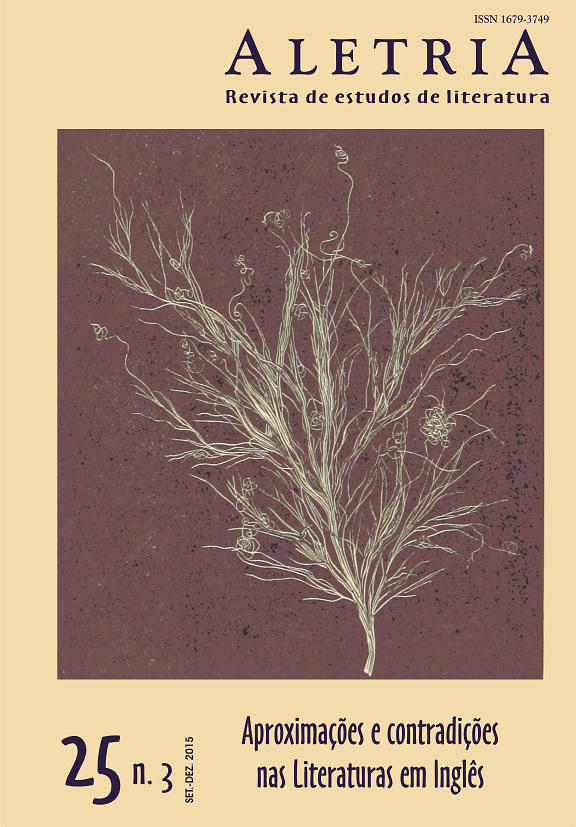Post-Industrial Hangover and Laddism in Trainspotting
DOI:
https://doi.org/10.17851/2317-2096.25.3.49-65Keywords:
Irvine Welsh, contemporary Scottish literature, laddism, drugsAbstract
This article discusses the impact of the social and political scenario of the last decades of the 20th century on the Scottish literary production, having Irvine Welsh’s novel, Trainspotting (1993) as its object of analysis. It is argued that the existential void made extreme through drug abuse does not constitute the central issue of the work, which is actually the scrutinizing of the feeling of lethargy of a generation deluded by the economic model of late 20th-century post-industrial society. Drugs and the characters’ subsequent inertia in Trainspotting are represented by Welsh as elements of subversion as opposed to the model of a deeply consumerist society. Moreover, massive unemployment ends up creating new social relations among men and women, ensuing a strong wave of self-assurance through sexism, laddism.
Downloads
References
AB’SABER, Tales A. M. A música do tempo infinito. São Paulo: Cosac Naify, 2012.
BAKHTIN, Mikhail. Problemas da poética de Dostoiévski. Trad. Paulo Bezerra. Rio de Janeiro: Forense Universitária, 2010.
FISHER, Mark. Capitalist realism: is there no alternative? Winchester; Washington: Zero Books, 2009.
FISHER, Mark. Ghosts of my life: writings on depression, hauntology and lost futures. Winchester; Washington: Zero Books, 2014.
MORACE, Robert. Trainspotting: a reader’s guide. New York: The Continuum International Publishing Group, 2001.
MORETTI, Franco. A literatura vista de longe. Trad. Anselmo Pessoa Neto. Porto Alegre: Arquipélago Editorial, 2008.
OXFORD Dictionary. Oxford University Press, 2008. Disponível em: http://www.askoxford.com/concise_oed/trainspotter?view=uk. Acesso em: 27 set. 2015.
PECKHAM, Aaron. Urban Dictionary. USA, 2007. Disponível em: http://www.urbandictionary.com/define.php?term=trainspotting. Acesso em: 27 set. 2015.
POP, Iggy. Neon Forest. In: Brick by brick. Londres: Virgin Records. 54’09’’. 1 CD.
SANTAELLA, Lucia. Corpo e comunicação: sintoma da cultura. São Paulo: Paulus, 2004.
SARTRE, Jean-Paul. O existencialismo é um humanismo. Trad. Rita Correia Guedes. Tradução de SARTRE, Jean-Paul. L’Existentialisme est un humanisme. Paris: Les Éditions Nagel, 1970. Disponível em: http://stoa.usp.br/alexccarneiro/files/-1/4529/sartre_exitencialismo_humanismo.pdf. Acesso em: 27 set. 2015.
SLOTERDIJK, Peter. Se a Europa despertar. Trad. José Oscar de Almeida Marques. São Paulo: Estação Liberdade, 2002.
SMITH, Murray. Trainspotting. London: British Film Institute, 2002.
WELSH, Irvine. Trainspotting. New York: Norton, 1996.
Downloads
Additional Files
Published
How to Cite
Issue
Section
License
Copyright (c) 2016 Fabiane Lazzaris, Lauro Iglesias Quadrado (Autor)

This work is licensed under a Creative Commons Attribution 4.0 International License.
Authors who publish with this journal agree to the following terms:Authors retain copyright and grant the journal right of first publication with the work simultaneously licensed under a Creative Commons Attribution Non-Commercial No Derivatives License that allows others to share the work with an acknowledgement of the work's authorship and initial publication in this journal.Authors are able to enter into separate, additional contractual arrangements for the non-exclusive distribution of the journal's published version of the work (e.g., post it to an institutional repository or publish it in a book), with an acknowledgement of its initial publication in this journal.Authors are permitted and encouraged to post their work online (e.g., in institutional repositories or on their website) prior to and during the submission process, as it can lead to productive exchanges, as well as earlier and greater citation of published work (See The Effect of Open Access).





